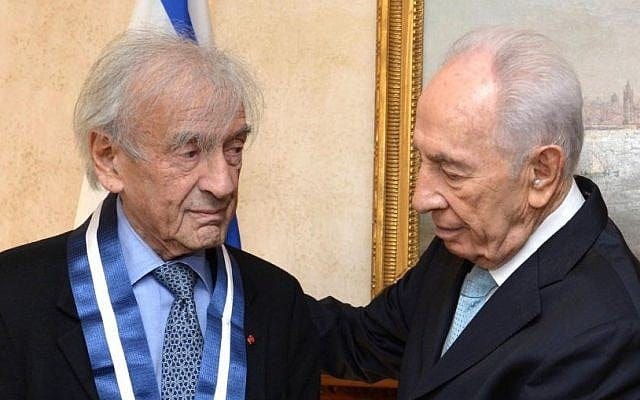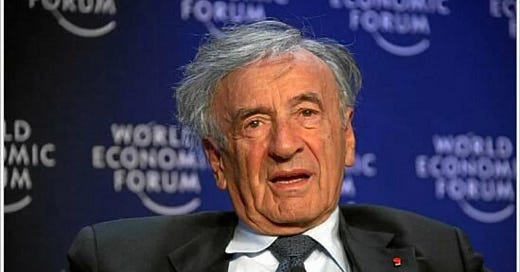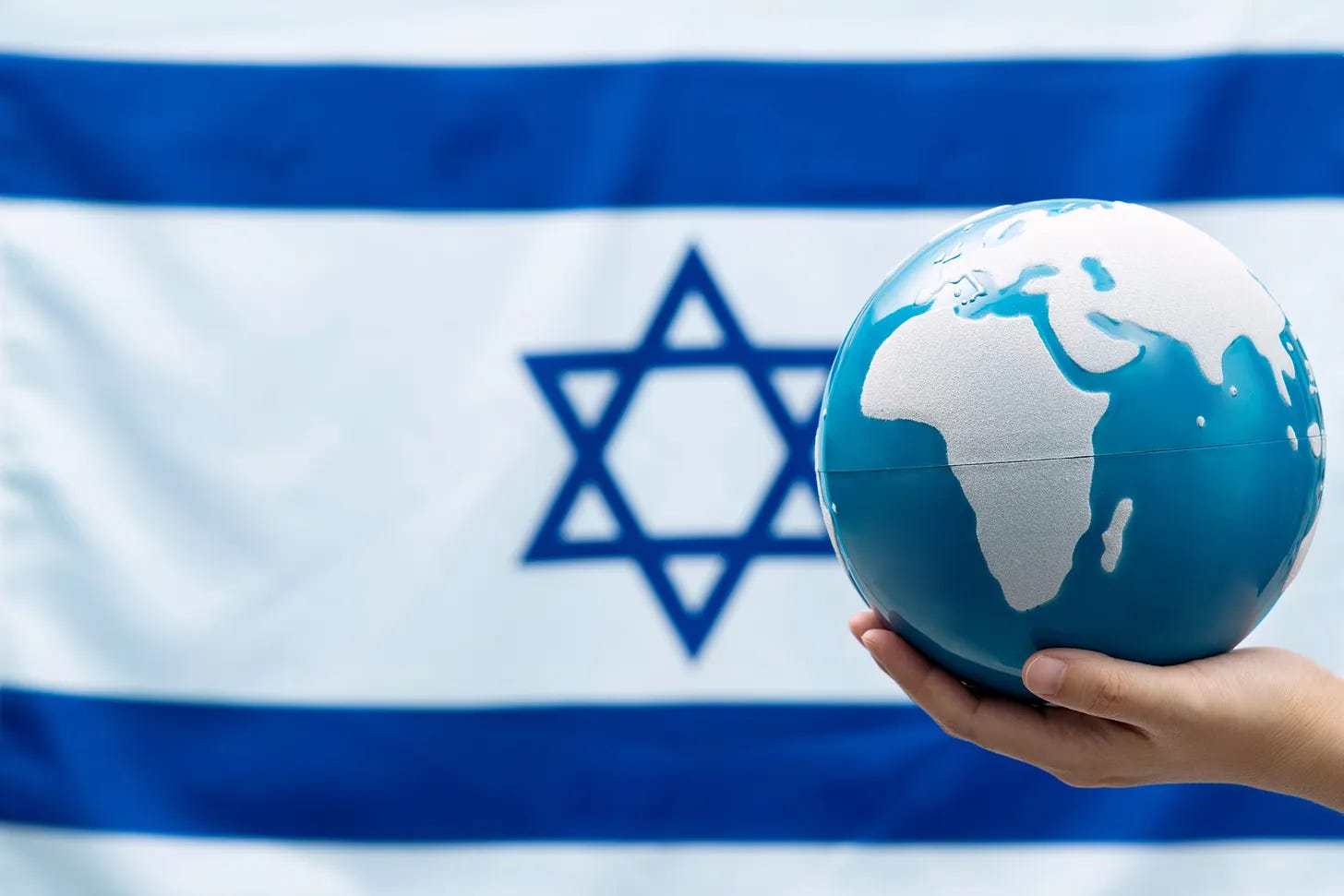Memories of Elie Wiesel
"Our connection to Elie and Shabbat was visceral. By being in his presence, feeling his gentleness, his anguish, his questioning, and by studying and praying with him, he changed us."
By Michael S. Lewis, M.D.
For a quarter of a century, Elie Wiesel spent one Shabbat weekend per year at Moriah Congregation, our synagogue in the Chicago area. His annual visit for many of us was one of the central events of our lives.
As a child, Elie was a brilliant student of Torah and Talmud. This was not surprising since he was descended from a long line of Hasidic rabbis.
In May 1944, when Elie was 15 years old, the Nazis deported him, his parents and his sisters to the Auschwitz-Birkenau concentration camp. The Holocaust was the defining event in Elie’s life. He said that he was tormented by G-d’s silence. He poignantly stated:
“I never gave up on my faith in G-d, but I have a wounded faith. I am a G-d intoxicated man. Only a believer could be so angry with G-d.”
Just a teenager, he experienced the worst of humanity — and yet came to embody the best. He was our collective conscience.
Elie Wiesel was a man of so many facets. He was an activist with a strong sense of moral outrage. He spoke truth to power. Elie told President Ronald Reagan that it was not appropriate for the President of the United States to attend Bitburg Cemetery in Germany, where members of the Nazi SS had been buried:
“This is no proper place for you, Mr. President. Your place is with the victims of the SS.”
Elie had great sensitivity to human suffering. He said that we must always take sides:
“The greatest crime is to do nothing because we feel we can only do a little. The opposite of love is not hate — it is indifference. Everyone has a role to play. Everyone can do their part.”
In November 1993, my wife Valerie and I were honored to be invited to New York City to attend one of Elie’s conferences, entitled, “The Anatomy of Hate: Saving Our Children.” Valerie became deeply involved in the Soviet Jewry movement, in part because of Elie’s moving descriptions of the Jews he had met on his visits to the Soviet Union.
Elie was extraordinarily ecumenical. He continuously confronted hatred — including in such places as Sarajevo, Rwanda, and Cambodia — without regard to race or religion.
A scholar and educator who wrote more than 30 books, in 1986 Elie was awarded the Nobel Prize for Peace. He was a storyteller who viewed human beings through the novelist’s lens, and said that G-d made man because G-d loved stories.
One of my favorite of Elie’s Hasidic tales is about the Tzaddik of Nemerov. This rabbi had a way of disappearing during the time of Rosh Hashanah. Everyone knew that it was because he went to heaven during that time — to take care of a few things. One member of the congregation was skeptical and was determined to follow the rebbe.
The congregant observed that the rebbe arose early, dressed like a peasant, chopped down a tree and split it into logs. Then, disguised as a seller of wood, he went to the home of a poor, sick widow. She told him that she could not afford his wood, but he proceeded to light the fire and told her that he would trust her for the money. After observing all of this, the congregant became the rebbe’s most devoted follower. When asked if the rebbe went to heaven during the high holidays, the congregant no longer sneered, but answered: “To heaven? No, higher.”
Our connection to Elie and Shabbat was visceral. We at Moriah Congregation were transfixed by his soft, weary voice and quiet intensity. We strained to catch and soak up every word. By being in his presence, feeling his gentleness, his anguish, his questioning, and by studying and praying with him, he changed us.
He gave us glimpses of his early life in Sighet, Transylvania. At his Shabbat dinners, he imagined angels fluttering around his grandfather’s shoulders. When he would sing a nigun from his childhood, we could feel the mystical power of his musical prayer. Every Shabbat, my own family sings a nigun taught to us by Elie Wiesel.

He strongly believed in celebration. Although exquisitely aware of man’s inhumanity to man, he was a messenger of hope. Elie elaborated on this dichotomy:
“It is so strange — because we live in tragic times, in turbulent times, every fiber of my being wants to celebrate. Even in the death camps they danced on Simchat Torah, and we must dance today because of so much sadness.”
“In happiness you recognize your true friends. You will usually find friends to feel sorry for you, but rare are those who will be happy simply because you are happy. Let your friends’ good fortune be as dear to you as your own.”
Elie had a charming sense of humor. For many years, Valerie was in charge of selling his books. This meant going to his hotel room where he signed his books, and we would then bring him to the synagogue with us. On one occasion he asked how we had met. I replied, “I was walking under a tree and she fell into my arms.” Without missing a beat, he responded: “You doctors are so fortunate. We writers would have to contemplate for a long time to imagine such a story.”
He was once asked if the universe has a purpose? He answered:
“I hope so, but If not, it is up to us to give it one. How was I saved? Since I don’t find a meaning for my own survival, I must infer a meaning from it. That’s why I teach and write. To justify my existence. Others have been here before and I walk in their footsteps.”
May we always remember that the opposite of love is not hate, it is indifference. As Eli taught, everyone can do their part, and whenever possible, we must celebrate together.
MICHAEL S. LEWIS, M.D. is a former Orthopedic Consultant to the Chicago White Sox and the Chicago Bulls, and the author of Getting Wiser.
From decoding politics to the cutting edge of wellness to the human angle on sports to parenting and personal relationships — plus our unsparing take on what’s happening in the Jewish world — the canvas at JEWDICIOUS is limitless. Our 18 scribes share one overarching goal: To present you with new ideas and slices of life that will hit your head or touch your heart!






Great article on a great man. Thanks to both Michaels for writing and publishing it.